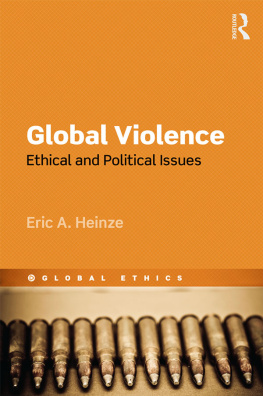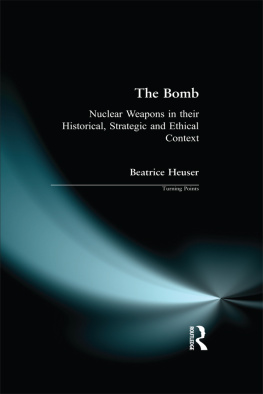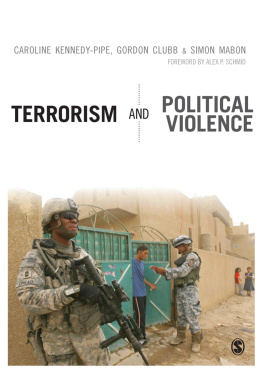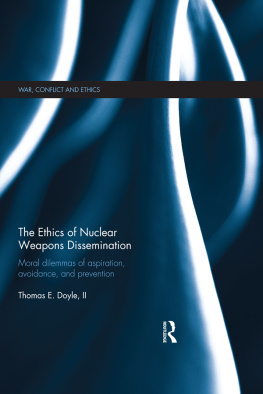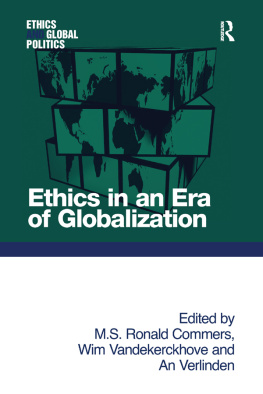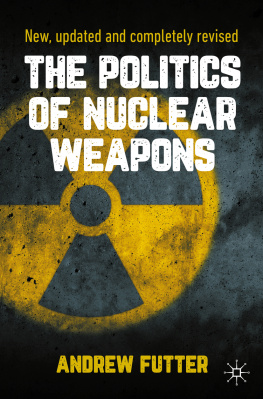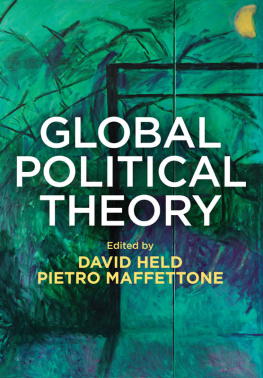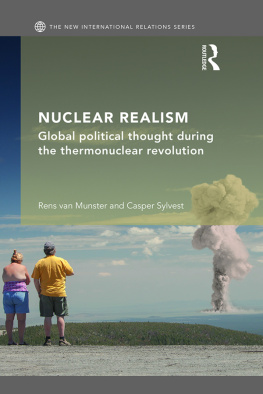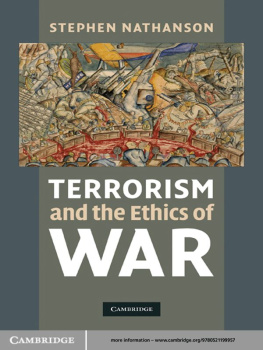Global Violence
What does it mean to say that a particular war is just or unjust, that terrorism is always wrong, or that torture can sometimes be morally justified? What are the moral bases for possessing or using nuclear weapons, intervening in other countries civil wars, or being a bystander to genocide? Such questions take us to the heart of what is morally right and wrong behavior in our world.
Global Violence: Ethical and Political Issues provides readers with the analytical tools to better understand the suppositions that underlie the debates about such questions, and it advances its own reasoned and informed ethical analyses of these topics. The book engages different normative approaches from the fields of ethics, political theory, and international relations, and uses them to examine a set of case studies on the subjects of inter-state and civil war, nuclear weapons, terrorism, torture, and genocide.
Eric A. Heinze is Associate Professor of Political Science and International Studies at the University of Oklahoma, USA. He is the author of Waging Humanitarian War: The Ethics, Law, and Politics of Humanitarian Intervention (2009); co-editor of Ethics, Authority, and War: Non-State Actors and the Just War Tradition (2010); and editor of Justice, Sustainability, and Security: Global Ethics for the 21st Century (2013).
GLOBAL ETHICS
Series Editor: Anthony F. Lang, Jr, Chair in International Political Theory at the University of St Andrews, UK
Global Ethics reframes contemporary problems in the world with tools drawn from ethics and political theory. In so doing, it gives concerned global citizens the means by which to not only understand current issues but to evaluate those issues. Topics include some of the most difficult and intractable political dilemmas facing the current world order: violence, wealth, environment, gender, culture, peace, law, health and crime. Each one of these topics is now of international concern, and so each book will give an overview of the existing approaches to the subject while also bringing to bear its own perspectives, judgments, and evaluations.
Forthcoming titles:
Global Distributive Justice
Global Environment
Global Peace
Global Criminal Justice
Global Law
Global Health
Global Genders
Global Cultures
Global Violence
Ethical and Political Issues
Eric A. Heinze

First published 2016
by Routledge
2 Park Square, Milton Park, Abingdon, Oxon OX14 4RN
and by Routledge
711 Third Avenue, New York, NY 10017
Routledge is an imprint of the Taylor & Francis Group, an informa business
2016 Eric A. Heinze
The right of Eric A. Heinze to be identified as author of this work has been asserted by him in accordance with sections 77 and 78 of the Copyright, Designs and Patents Act 1988.
All rights reserved. No part of this book may be reprinted or reproduced or utilized in any form or by any electronic, mechanical, or other means, now known or hereafter invented, including photocopying and recording, or in any information storage or retrieval system, without permission in writing from the publishers.
Trademark notice: Product or corporate names may be trademarks or registered trademarks, and are used only for identification and explanation without intent to infringe.
British Library Cataloguing in Publication Data
A catalogue record for this book is available from the British Library
Library of Congress Cataloging in Publication Data
Heinze, Eric A., author.
Global violence: ethical and political issues / Eric A. Heinze.
pages cm. (Global ethics)
Includes bibliographical references and index.
1. ViolenceMoral and ethical aspects. 2. ViolencePolitical aspects. I. Lang, Anthony F.,
1968- writer of foreword. II. Title.
BJ1459.5.H45 2015
172.42dc23
2015027177
ISBN: 978-1-844-65631-8 (hbk)
ISBN: 978-1-315-68464-2 (ebk)
Global ethics means different things to different people. For some, it is a subspecies of philosophical ethics, an effort to provide arguments for specific behaviors and outcomes in social and political life at the global level. For some, it is a series of rules by which one ought to live life in situations where domestic rules are either inapplicable or unclear. For some, it is a stance from which to critically assess the actions of governments in their behaviors and the outcomes that those behaviors produce.
This Global Ethics series does not begin with an assumption of what global ethics means; rather, the intention of this series is to have a number of authors from a range of different backgrounds contribute to a conversation about what global ethics is and can be. I, for example, as series editor, come from a background in political theory and international relations, but I have also contributed to and find great value in moral philosophy, ethical theory, international legal theory, and theological ethics. As a result, the authors commissioned to contribute to this series come from a range of disciplinary backgrounds and explore the nature of their topics with tools drawn from these different ways of thinking. Importantly, the books in this series do not sit at the level of ideal theory, but instead draw upon and critically assess practices and policies in the real and complicated global order.
The topics chosen provide insight into some of the most contested and difficult political issues at the global level. They are consciously pitched at a meso-level, that is, between the level of empirical detail and the level of grand abstract theory. Locating issues and topics at this level allows these books to both draw from the realities that constitute our world and critically assess them through the normative tools upon which they are drawing.
The first book in the series, Eric A. Heinzes exploration of global violence, is an ideal book with which to launch the series. One of the features that defines the politics of the global system is the fact that violence is more accepted and commonly used than in many domestic contexts (though not all, of course). As such, this topic establishes the distinctive element of global politics. As Heinze demonstrates, however, this does not mean that there are no rules governing the use of violence at this level. Heinzes introduction highlights the fact that his analysis draws from ethics, political theory, and international relations theory. In so doing, he demonstrates how each of these approaches speaks to the dilemmas and problems of violence at the global level.
Heinze also does not hesitate to make normative claims himself, an important element shared by all the books in this series. They are not simply reviews of various arguments, but set out their own assessments of how we should understand and evaluate the practices of global violence. For Heinze this means bringing together some of the most important normative traditions, such as deontology, consequentialism, and virtue ethics, to construct a normative standard. In addition, Heinze highlights the centrality of community in our assessments of global violence.
Finally, this book establishes an important precedent for the series. As Heinze notes, in ethics we often we find assertions rather than arguments. Heinze sees his book as providing the tools by which to make normative arguments about the use of violence at the global level. Perhaps the most famous tradition of thought in this realm, just war, embodies exactly this kind of argumentative approach. Heinze does not draw directly on the just war tradition, but he makes clear that it and the other approaches he uses give us the ability to make arguments rather than assertions. It is my hope that this series will give us the means to more productively and carefully argue about global ethics.
Next page
